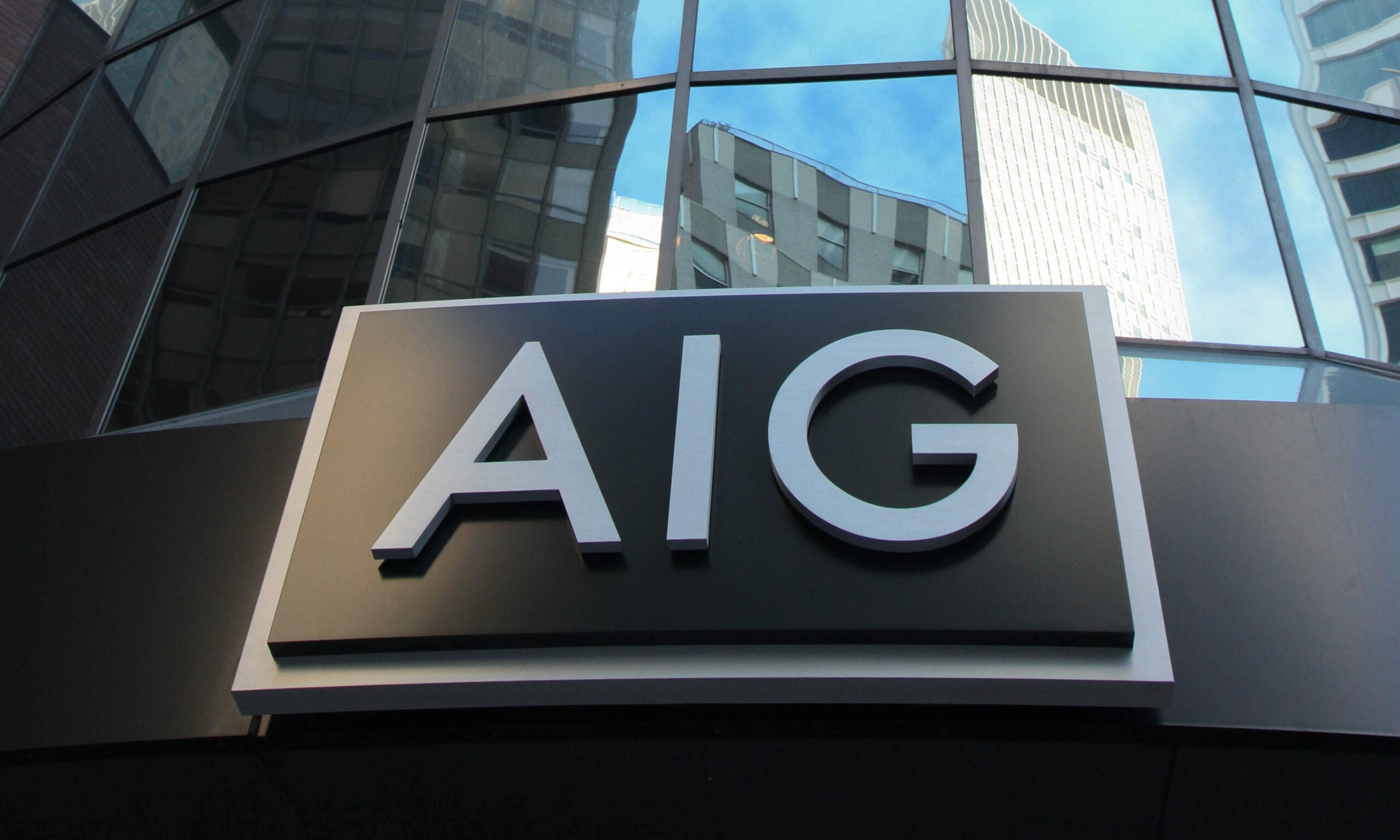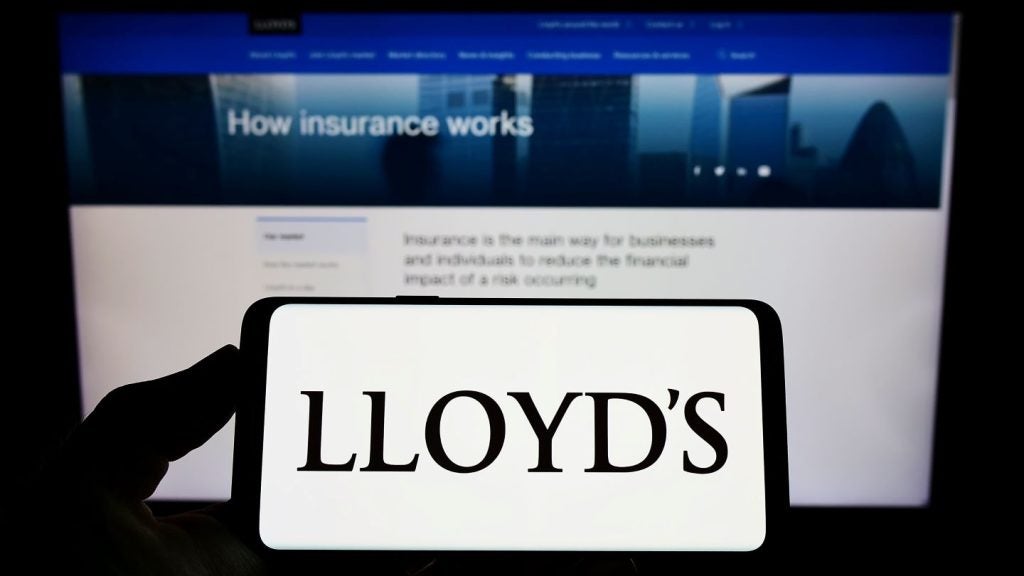
AIG Life CEO Adam Winslow speaks to Life Insurance International (LII) editor Ronan McCaughey about innovation and how medical data is the biggest roadblock for the life insurance industry
After AIG’s bailout from the US taxpayer following the 2008 financial crisis, the American insurer sold off its international life insurance businesses – namely Alico To MetLife – as well as IPOing AIA in order to repay its debts.
Adam Winslow, who became CEO at AIG Life in September 2015, tells LII how AIG re-entered the UK life market through its acquisition of Ageas Protect in December 2014. [Ageas completed the sale of its 100% shareholding in Ageas Protect, its UK life protection company, to AIG for £197m].
Winslow says: “AIG had two options: To start from scratch or acquire and re-brand. What attracted us to Ageas Protect was it being a young business.
“We liked that the platform was owned and developed by the business, whilst being very scalable. What the business needed was more capital to fund new business and help it grow.”
Winslow adds that AIG Life aims to more than double the size of its new business inflows over the next three to four years, but notes that the insurer will be solely focused on being a UK pure protection insurance player.
How is AIG innovating?
AIG Life recently extended access to its products to UK non-domiciles to help them manage a change in UK taxation rules which makes them liable to inheritance tax on enveloped dwellings (IHTED). Winslow says the move is a deliberate play to move into the high net-worth market.
“If you don’t have an IHT solution for high net worth brokers, then it’s quite difficult, even with the best will in the world. We’re only starting to break into this part of the market since 2015. Last year we more than doubled what we wrote from 2015. This year we think we’ll more than double again.”
AIG Life also released Key3 in August 2016, a critical illness (CI) product targeting younger single people and those on a tighter budget.
“The ABI statistics show that the CI market was shrinking every year. But are less customers being diagnosed? No.
“It came down to two things: One, the products were very complicated, and two, comprehensive cover is costly. There were a huge number of potential purchasers who either couldn’t get there heads round it or couldn’t afford it.
“The fear from our perspective was, would the Key3 product start to cannibalise our share of the comprehensive CI market, which we had refreshed in December 2015?
“Our share of the overall CI market went up. We didn’t see any less business from the comprehensive CI market, so we were able to help grow the market.”
Medical data is the missing link
Winslow suggests that one of the key improvements for the life industry would be better access to medical records, allowing customers to buy life insurance through a financial comparison website with ease.
He tells LII: “The sticking point for life insurance is underwriting and medical data. With a car insurance policy, there aren’t many different questions. It’s easy for one site to ask the same questions and spin that information back to 60 different insurers, and then list out the different prices, features and benefits to general insurers.
“There are relatively standard questions we would all ask – Are you a smoker? What’s your weight? How many units do you drink? What activity do you undertake?. The answers might determine whether we could offer a standard rate or whether we’d need to do some extra underwriting, which may lead to loading as a consequence of an answer that sits outside of standard criteria, or whether we might want some medical evidence.
“On the medical evidence side, we’d ideally like to ask fewer questions. In a banking partnership, we’re down to 11 or less now.
“For us to ask even less, ideally we’d have access to your medical data. Down the track, I’d hope that we’d each own our own medical database. This could be shared with organisations either in part or in full.”
Winslow would like the UK government to allow consumers to access their medical data, which they could provide to third parties if they chose to, but notes that changes are unlikely to be made in the short term.
“Modernising IT systems and platforms in the NHS has been a work in progress for 25 or 30 years. I’m realistic enough to know that it falls into lottery winning odds.”
Partnering up
Winslow says that one of his focuses is to grow AIG Life’s partnerships business in order to diversify from purely interacting with intermediaries.
The business partnered with NFU Mutual in 2016, and another partnership with a UK retail bank is set to take place in July 2017. It is also in advanced discussions with one retailer.
“Do I think our partnership business will be as large as our intermediary business? Probably not. Do I want the two to be as equal weight as I can get them – absolutely? If opportunity, time and competitive pressures allow.”
Winslow suggests that there is great potential in partnering with retail banks“Five to 10 years ago, the banks were selling a lot more protection than they are today. It’s been the source of the biggest outflow in the market in terms of new business.
“The potential is there. If you’re talking to customers about their single biggest debt – a mortgage, talking about what can they do to protect themselves and their dependants, if the worst happens, feels like the common sense thing to do.”
Mandate a protection conversation
Winslow also feels that the UK government should mandate a conversation around protection when a mortgage is taken out:
“If every single person who takes out a mortgage has a mandatory conversation around protection, that wouldn’t be a bad place to start. There are a huge number of people with mortgage debt with no plan B.”
Winslow adds that partnerships with retailers would allow access to data in the form of retail spending trends, allowing for better propositions to customers. AIG Life is in “advanced talks” with one retailer. However, Winslow adds that there could be some challenges in leveraging the data provided:
“Utilising customer data and finding out you’re buying 2,000 cigarettes and six cases of wine – the chances are that’s not a great underwriting outcome.
“We would never want to damage someone’s brand, we will only ever want to use customer data to the letter and law of regulation, but crucially to craft something individual, personalised and relevant.”







